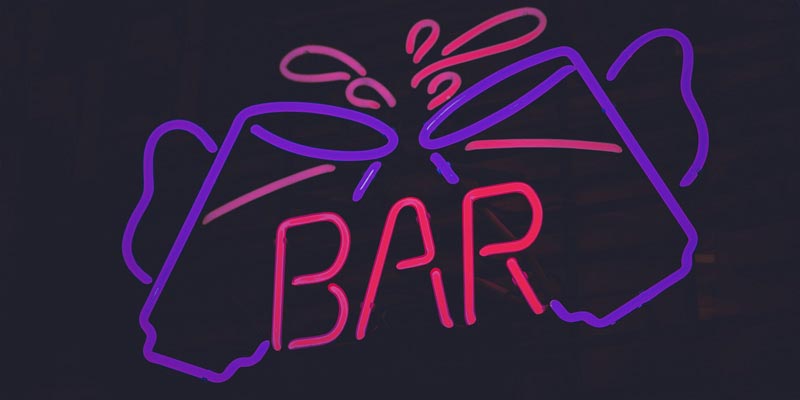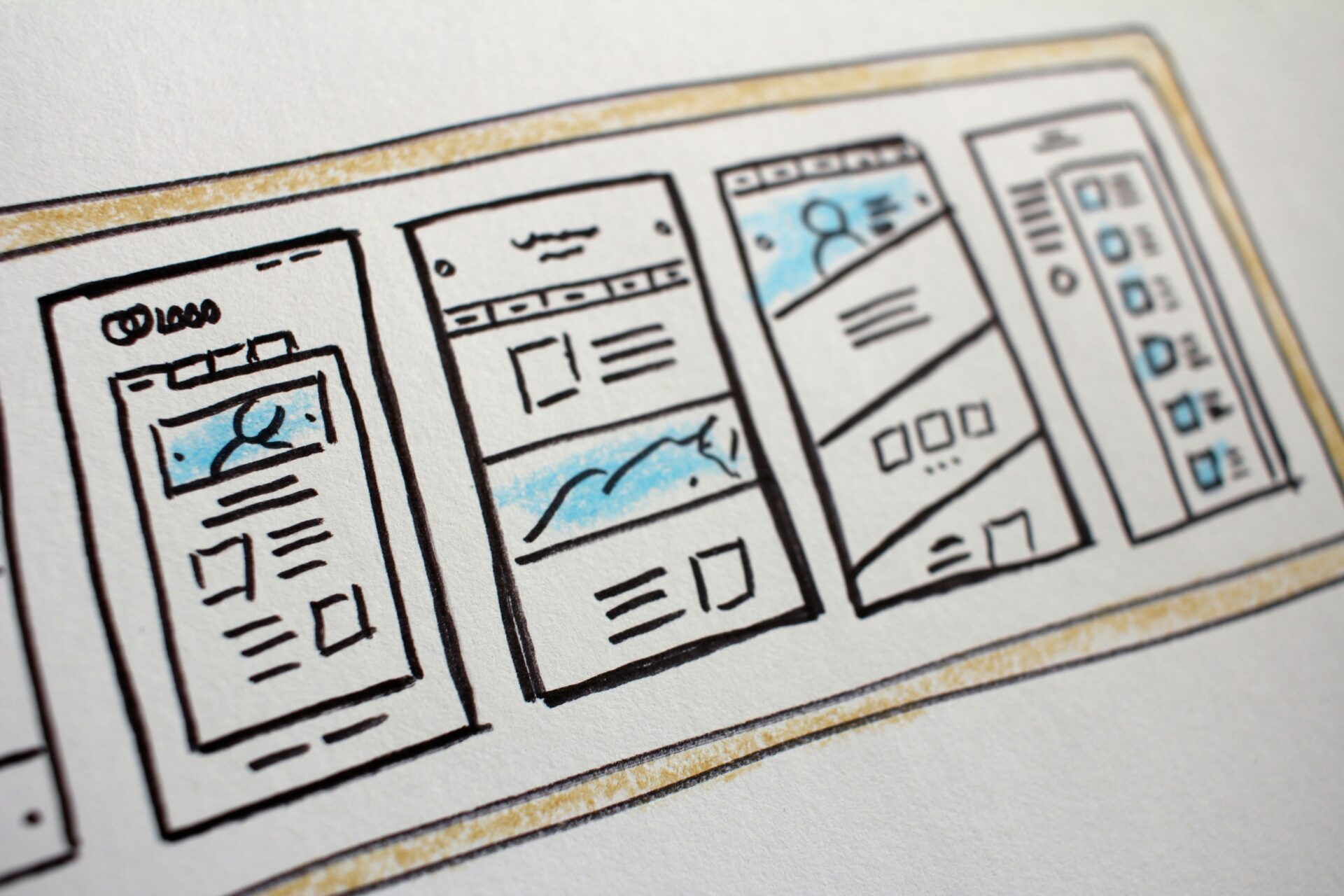
Designing Great Websites for Your Brewery or Wine Bar
If you own a restaurant, brewery, or wine bar, you need to provide something so much more than just another beer website. You need this site to be your storefront, your best salesman, your virtual tour, and a preview of the products you offer.
With so much on the line, you need to make sure you do this the right way. And you need to be patient. Too many people put up a brewery website and after 6 months assume it doesn’t work because it does not produce sales, but a website is not a set it and forget it tool. It needs to be maintained, measured and adjusted.
With that in mind, we’re going to show you how to build an amazing website for your brewery or wine bar. We’ll show you how to set it up to succeed and ensure it keeps succeeding over the long haul.
1. Have a Keyword Strategy in Place
Your keyword strategy is the core of your search engine optimization (SEO) strategy. It’s one of the oldest ways of garnering SEO success. But unfortunately, that means a lot of people are still treating it the way we did 10 years ago.
Keyword rules keep changing because Google is getting smarter and more in tune with what people are searching for, and how to give it to them.
Here are some tried and tested keyword tips for your brewery website:
- Make sure your keywords are in your title, headline and meta description
- Working them into your opening paragraph and an H2 is great too
- Don’t overuse them, or “keyword stuff.”
- Make sure they’re also in your image descriptions, captions, and even file names
And here are some keyword tactics that are so 2007:
- Don’t use exact match keywords anymore. Google wants you to write for human beings, not just search engines. So don’t waste time trying to work “best wine bar downtown” into a sentence. Use them organically
- Don’t worry about keyword density. For years, people debated the exact number of times you needed to work your keyword into your copy. Now, it’s more about how you use keywords, not how much.
Don’t Forget About Longtail Keywords
This has become a huge factor in winning the SEO war, particularly locally. And they will make the difference between a good brewery website from a brewery website that nobody knows about.
Longtail keywords have become more crucial as people are now entering complete questions into Google as expecting complete answers. It’s also growing as people are getting used to pushing a button to ask Siri or Google a question.
Your brewery website’s blog and FAQ pages are the best places to work in these longtail keywords in an effective organic way that search engines will appreciate.
How Do You Find These Longtail Keywords and Queries?
You have direct access to a lot of them. First of all, ask your server staff what questions they hear the most.
Take these questions (in the exact words your customers use) and turn them into blog titles.
Next, go onto your own Facebook/Twitter/Instagram page and harvest all the questions and comments that customers are posting. Again, use the exact same verbiage.
Now, do the same to all of your competitor’s websites. This is called competitive analysis, and allows you a chance to gain the same traffic that your competitors are getting.
2. Your Off-Site SEO Strategy
Google isn’t just interested in what you say about yourself (on-site strategy). They also want to know what other people are saying about you (off-site strategy).
It’s hard to estimate exactly how much of your SEO ranking that your off-site tactics contribute towards. Google guards their secret algorithms pretty closely.
But, in a hyper-competitive and hyperlocal space like wine bars and breweries, it’s not unreasonable to assume it will drive well over half of your success for your website. If not, much more.
Here are the 4 key areas you need to focus on to make sure your brewery website wins the local SEO war.
Link Building
You want lots of links on other sites pointing back to your site. This builds your SEO clout, as other people are talking about you. But like keywords, recent trends have caused a shift away from quantity and towards quality.
The Google Penguin update was one giant “hey knock that off” to businesses who were trying to build their ranking with spammy links and link farms.
What is a spammy link? Basically, an exact match anchor text of a keyword on an irrelevant site. Basically, you have a link with the anchor text “best wine bar Houston” on a website that has absolutely nothing to do with wine.
Don’t do that. Google hates that. They prefer you get relevant links from places like other brewery websites, local news or restaurant reviewers (more on that later).
But the good news is this update is part of Google’s core algorithm and works in real time. So if you clean up/ take down your spammy links, you will see the results for your brewery website almost immediately.
Your Google Business Listing
This is free and the easiest thing you will ever have to do to drive local business, yet it’s just staggering how many businesses ignore it.
This is literally as simple as making sure that Google has your most recent:
- Address
- Phone number
- Website
- Hours of operation
Changing to seasonal hours? Tell Google first. Move or open a second location? Make sure Google knows.
It’s a 5-minute task that can make sure people Googling to find a local wine bar or brewery find you. If you don’t show up in those searches, 100% of those searches results will go to your competition.
And yet, half of the businesses out there don’t update their own listings or have inaccurate information.
So make sure all of your information is up-to-date and complete. And give a single celebratory fist pump if your competition does not. They just did you a solid.
Online Reviews
We’re not exaggerating when we say this will make or break you. Some statistics to consider:
- Every one-star incremental increase in your Yelp rating gives you a 5 to 9% increase in revenue
- 90% of consumers will read online reviews before visiting a business
- 82% of Yelp visitors are purchase-ready
- About 60% of people will read an online review at least once before going to a restaurant
See what’s at stake? But even though your online reviews are crucial, do not fake them. Ever. This can cause your business to lose a lot of face and clout with customers and the actual site you’re forging them for.
It’s actually far easier and more effective to ask customers for good reviews and reward them for doing it.
This works online and off. Train your staff to remind customers that if they like your beer or wine, tell the world on review sites. You can even offer promotions and discounts to those who do.
Your brewery website can also use any number of plugins to aggregate and publish these online reviews right on your website and give you instant credibility.
Influencer Marketing
This is a big one and it can take many forms. In the case of breweries and wine bars, your influencers can take the form of an individual or organization. It might be a blogger, another brewery website, or an online magazine.
It’s any person or press that you can get talking about your offerings. And saying nice things, ideally.
Remember:
- Influencer marketing has been shown to have an ROI that’s 11 times higher than other forms of digital marketing.
- 94% of businesses that invest in influencer marketing see positive results
It works because you’re tapping into a legion of followers who trust your influencer’s opinion, and that opinion will actually drive their buying decisions.
These would-be customers likely follow your influencers on social media and subscribe to their mailing list.
How Do I Approach an Online Influencer?
Even though this is a relatively new media, you still need to use some old school PR tactics:
- Be tactful and transparent: These people know what you want and have businesses approaching them all the time. Be respectful of this fact and their time.
- Make them feel like a big deal, but don’t suck up: There’s a fine line between being sycophantic and sincere in letting them know you value (and sort of need) their opinion. Find the happy place.
- Find the space between “I’m trying to impress you” and “I’m trying to bribe you.”
- Reach out to them directly: Unless your PR agency has an existing relationship with an influencer. A brewery website would rather talk to a beer expert than a PR agency.
- Or, if you have a friend or associate who’s worked with this influencer before, have them make the introduction. Referrals and people vouching for you will always break the ice.
3. Social Media
This is also technically off-site marketing, but it’s so big it gets its own section.
Social media is actually now a search engine. A lot of people (particularly millennial-aged people) will look a business up on social media before they try it out, and before they even Google it, and before they look up your brewery website.
You need to take this very seriously. You need to have a full-time staff member “own” social media or bring in an agency that can do it for you.
They basically have 3 jobs:
Build and maintain your community: They’re in charge of gaining followers by curating rich content, like impactful blogs and pictures. This is very ongoing, as an inactive social feed can turn off would-be patrons.
Spread your news and events: If you have a seasonal brew, your brewery website and your social feed need to announce it on the same day. The same goes for any upcoming events. Your social feed is the first place most will look.
Engage in real conversations: Social media is not a blowhorn or a bulletin board where the information flows outward. You need to have real interactions with fans and followers where you’re not trying to sell anything.
Also, your customers are going to have questions and you need to answer them in a timely fashion. If it’s a complaint, you need to answer even quicker. Almost half of the people surveyed said they expect a response within the hour.
4. Be Mobile Friendly
There has never been more importance placed on your brewery website’s mobile experience.
Just about a year ago, Google announced that it will be looking at your mobile site first when indexing and ranking. So these days, your mobile site has to be better than your desktop experience.
If that’s not enough to make you up your mobile game, consider the following:
- Restaurants, bars, breweries and wine bars have the highest search volume of any business from mobile devices
- In fact, 81% of buyers have searched for a restaurant on an app and 92% through a web browser in the last six months
- 75% based their decision on that search
- 80% think it’s important to see your menu on that search
- 84% will look at more than one business when planning a night out
- 88% of people that found a local business on a mobile device end up calling or visiting within 24 hours
If your mobile site sucks, you’re sending business to your competition. Google says that 61% of your users won’t return to your mobile site if they had any problems along the way, and 40% will go right to a competitor’s site.
Let’s Talk About Your brewery website
Our mission is to boost the perception of your brand to match the reality of how awesome you really are.
How can we help you? Click here to schedule a consultation.



